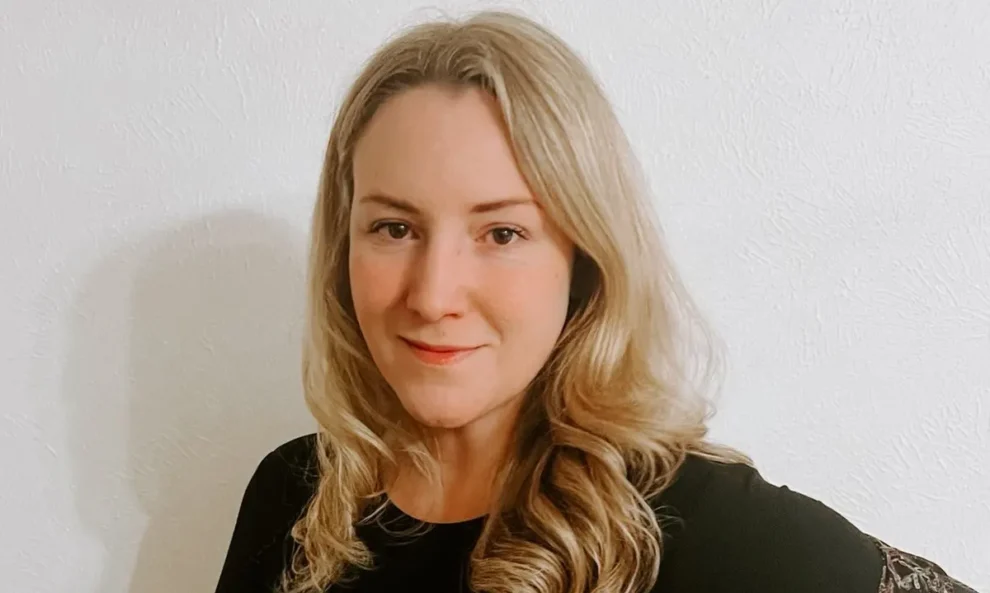A Texas woman filed an emergency lawsuit on Tuesday asking a judge to let her terminate her non-viable pregnancy. The woman recently learned of a lethal fetal diagnosis and her doctors said continuing the pregnancy threatens her life, health, and future fertility – but she’s been unable to get an abortion due to Texas’s multiple bans.
It’s the first time since the (now-overturned) Roe v Wade ruled in 1973 that an adult woman has asked a court to authorize an abortion. According to the complaint filed in state court, Kate Cox is 20 weeks pregnant and has been to three different emergency rooms in the past month to be evaluated for severe cramping and fluid leaks. Cox, a 31-year-old mother of two, learned last week that her baby has Trisomy 18, a fatal chromosomal condition. Her doctors told her that, because she’s had two previous Cesarean sections, she faces a higher risk of uterine rupture and hysterectomy. Despite there being “virtually no chance that their baby would survive to birth or long afterwards”, she’s been unable to get an abortion.
The complaint states that “because of Texas’s abortion bans, Ms Cox’s physicians have informed her that their ‘hands are tied’ and she will have to wait until her baby dies inside her or carry the pregnancy to term, at which point she will be forced to have a third C-section, only to watch her baby suffer until death”.
Her doctors said that if the baby’s heartbeat stopped, they could induce labor – but they cannot perform an abortion procedure known as dilation and evacuation (D&E). Due to her prior C-sections, inducing labor means she faces a higher risk of rupturing her uterus. A D&E would be the best medical option for her health, but doctors in the state who might provide it fear prosecution under Texas’s criminal abortion ban. Cox and her husband Justin are asking a judge in Travis county, Texas, to let the couple get a D&E and allow Cox’s OB-GYN, Dr Damla Karsan, to provide that care without the threat of prosecution by attorney general Ken Paxton, who is a defendant.
Cox is represented by lawyers from the Center for Reproductive Rights, and the suit seeks a temporary restraining order to block the state’s abortion bans from applying to her. The case is Cox v state of Texas.
Separately, the legal organization is suing the state on behalf of 20 women and two OB-GYNs, including Karsan, in a case called Zurawski v Texas. The women in that case were denied abortions while experiencing dangerous pregnancy complications, and they asked the state court to block the bans for people facing medical emergencies. The Texas supreme court heard arguments in Zurawski last week and the plaintiffs are awaiting a ruling.
In Zurawski, the state argued that the 20 women didn’t have standing to sue because they weren’t actively seeking abortions. Assistant attorney general Beth Klusmann said last week that a woman seeking an abortion for a health threat or fetal anomaly would arguably have standing to ask the state to clarify the law.
The complaint says that while Cox’s life is not imminently at risk, the longer she stays pregnant, the higher the risks are to her health and fertility. She filed an emergency motion because she cannot wait for a decision in that case.
Cox said in a statement that, by filing the suit, she’s trying to do what’s best for both herself and her baby. “It is not a matter of if I will have to say goodbye to my baby, but when,” she said. “I do not want to continue the pain and suffering that has plagued this pregnancy. I do not want to put my body through the risks of continuing this pregnancy. I do not want my baby to arrive in this world only to watch her suffer. I need to end my pregnancy now so that I have the best chance for my health and a future pregnancy.”
Nancy Northup, president and CEO of the Center for Reproductive Rights, said in a statement that Texas and other states with bans are putting people’s lives at risk. She added that the court needed to move urgently: “Women like Kate should not be forced to go to court to protect her health and preserve her future fertility.”
The complaint noted the fortuitous timing that Cox heard of the existing challenge to Texas’s abortion bans on the very day she learned of the lethal fetal diagnosis.
“Because of the unusual confluence of events and the specific progression of her medical condition, Ms Cox both heard about the case and was able to reach out to plaintiffs’ counsel for help,” it reads. “Most Texans will not be so lucky.”
Source: The Guardian
















